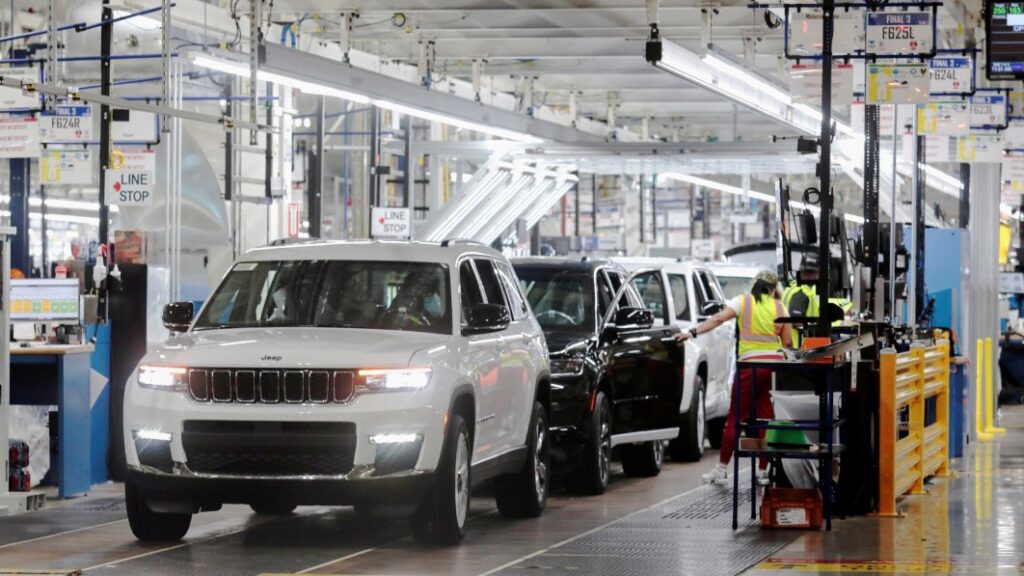Stellantis cutting back SUV production, citing California emissions rules

WASHINGTON — Chrysler parent Stellantis said on Thursday it will temporarily cut one shift at its Detroit assembly plant that builds Jeep sport utility vehicles, citing California emissions regulations.
The automaker, which employs 4,600 at the plant that builds versions of the Grand Cherokee SUV, said it will drop to two shifts from three shifts at its Detroit Assembly Mack plant and reduce production by an unspecified amount.
The move, it said, was “in part because of the need to manage sales of the vehicles they produce to comply with California emissions regulations that are measured on a state-by-state basis.”
Stellantis said on Wednesday it is seeking to void a 2019 California emissions deal in which rival automakers agreed to voluntarily cut emissions beyond levels stipulated by the then-Trump administration.
Separately, the automaker also said on Thursday its Toledo, Ohio, assembly plant that builds the Jeep Wrangler will move from an alternative work schedule to a traditional two-shift operation. Both moves will result in job losses but the company did not have a precise figure.
Stellantis said the shift will allow the Detroit plant to improve performance “in the event that a change in the regulations or marketplace allows for an increase in volume.”
The California Air Resources Board (CARB) declined immediate comment.
The company is warning more than 3,600 employees of potential job impacts, citing an abundance of caution, but did not have a precise total of jobs impacted.
Stellantis has been limiting shipments of gasoline-powered vehicles to dealers in states that have adopted California’s emissions rules and in some cases gas-powered vehicles were shipped to those states only for sold orders, once customers ordered such vehicles.
Stellantis has also at times limited sales of plug-in EVs to states adopting California rules and shipped only sold order vehicles to other states.
Ford, Honda, Volkswagen and BMW struck a voluntary agreement with California on reducing vehicle emissions, and Volvo Cars, owned by China’s Geely, joined soon afterward. Stellantis has since sought to join but been rebuffed.
Stellantis said the agreement allows participating automakers to comply based on national sales, while it and other firms are measured by sales in the 14 states following the California rules, which hinders it from selling electric models in other states.
In May, CARB asked the Environmental Protection Agency for approval for its rules adopted in August 2022 that would allow the state to ban the sale of gasoline-only powered vehicles by 2035 and require at least 80% electric-only models by then. The EPA has not yet opened the request for public comment.







